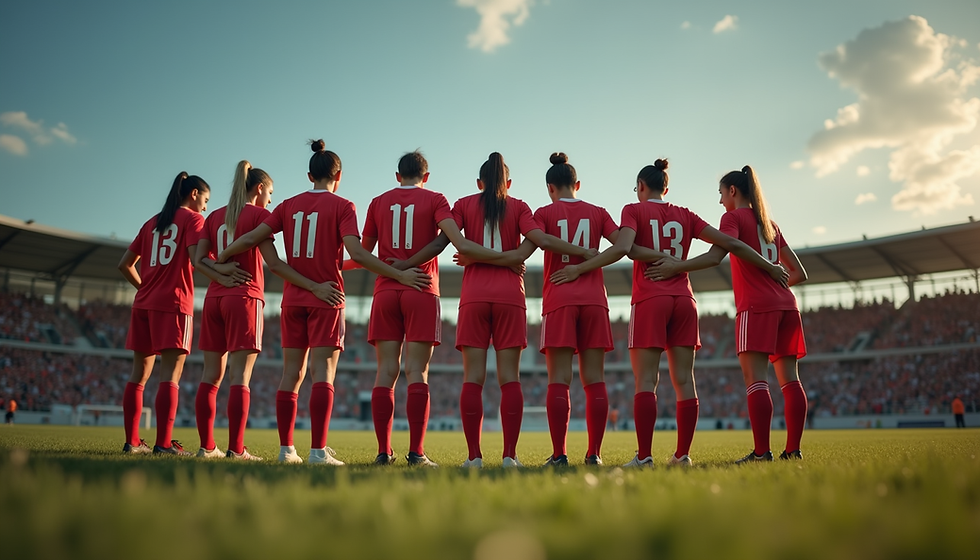The Resilience Gap: Why Talent Isn’t Enough Without Mental Recovery
- Oct 21, 2025
- 3 min read
Talent gets you noticed. Resilience keeps you in the game.
In elite sport, every player experiences failure — missed shots, lost matches, injuries, or the weight of expectation. But what separates consistent performers from those who fade isn’t talent, training, or tactics. It’s how quickly and effectively they recover mentally.
At Human Data Intelligence (HDI), we call this the resilience gap — the space between failure and response. And the teams who learn to close it are the ones who sustain success season after season.

Resilience Is More Than Mental Toughness
Resilience isn’t about “pushing through.” It’s not stoicism or denial. It’s the capacity to absorb emotional impact, process it, and return to equilibrium stronger than before.
Where toughness endures, resilience adapts. It’s flexible, not rigid — built on a foundation of emotional awareness, not suppression.
As HDI co-founder Rocco Baldassarre explains:
“The most resilient athletes aren’t those who never fall. They’re the ones who know how to stand up faster — and smarter — every time.”
The Three Layers of Resilience
HDI’s psychometric research identifies three distinct layers that make up true resilience:
Cognitive Recovery — How quickly the mind reframes setbacks.
Example: Turning a missed opportunity into actionable insight rather than self-blame.
Emotional Balance — The ability to process frustration, disappointment, or fear without being ruled by it.
Example: Remaining steady under public criticism or team pressure.
Behavioral Persistence — The commitment to consistent action, even when motivation wanes.
Example: Keeping training intensity after a poor performance rather than retreating.
Athletes who develop all three layers not only perform more consistently but also become cultural anchors within their teams — stabilizing group morale during difficult periods.
The Hidden Cost of Mental Fatigue
Physical fatigue is easy to detect — slower sprints, heavier breathing, muscle soreness. Mental fatigue, on the other hand, hides behind subtle signals: a lack of focus, decreased motivation, emotional reactivity, or self-doubt.
Without mental recovery systems in place, this fatigue compounds. Over time, it leads to what HDI calls “performance fragility” — where even minor setbacks cause disproportionate emotional or behavioral collapse.
Our data across professional teams show that players with low resilience scores experience up to 40% higher variability in match performance under stress, compared to those with higher mental recovery capacity.
How HDI Measures and Strengthens Resilience
At HDI, we evaluate resilience through measurable psychological, behavioral, and cultural parameters — particularly within the Mental Strength category, which includes:
Determination — Staying purpose-driven despite obstacles.
Hardiness — Maintaining optimism and composure in adversity.
Emotional Regulation — Managing reactions to stress or criticism.
Once we identify an athlete’s baseline, we design micro routines to build adaptive recovery habits. Examples include:
Post-error reflection: A 60-second reset exercise after mistakes to separate emotion from analysis.
Resilience journaling: Writing one learning point after each training session.
Mental contrast training: Visualizing both success and the challenges ahead, reinforcing preparation over fantasy.
These routines take minutes, but the impact compounds — transforming mental recovery into an automatic, trained response.
Team Resilience: The Culture Multiplier
Resilience doesn’t exist in isolation. Teams that recover well together — emotionally and tactically — outperform more talented groups that crumble after setbacks.
HDI’s cultural assessments often reveal that resilient teams share common traits:
Open communication during tough periods.
Non-punitive feedback systems where mistakes are treated as learning.
Shared language of recovery — rituals or signals that help players reset as a group.
As one elite coach told us:
“You can’t eliminate failure from sport. But you can train how your team responds to it.”
That’s the essence of team-level resilience — not avoiding adversity, but absorbing and realigning faster than your competitors.
Closing the Resilience Gap
In the modern game, every athlete is talented. Every team trains hard. The differentiator isn’t who avoids mistakes — it’s who recovers from them with purpose, clarity, and composure.
At Human Data Intelligence, we help athletes and teams develop the psychological systems that make resilience measurable, repeatable, and trainable.
Because in sport — as in life — success isn’t built on avoiding the fall. It’s built on how you rise.
.png)



Comments